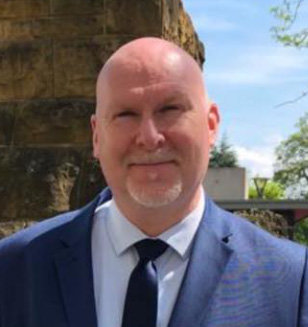In a remarkable shift within Argentina, a third of new breast cancer diagnoses are now among individuals over the age of 70. This trend underscores not only the impact of an aging population and increased life expectancy but also highlights the critical importance of tailored treatment strategies and multidisciplinary teams in balancing efficacy with quality of life.
Understanding Breast Cancer Trends in Argentina
Every year, Argentina records approximately 22,000 new cases of breast cancer. Notably, a significant portion of these cases, a full third, occurs in people aged 70 and above. As life expectancy rises, so too does the prevalence of breast cancer among the elderly, prompting a shift in how treatments are approached.
The Role of Comorbidities in Treatment Decisions
The presence of comorbidities in older patients significantly influences the choice of cancer treatment strategies. Oncogeriatricians play a pivotal role in tailoring therapies to suit individual needs while still prioritizing essential screenings recommended for early detection.
Early Detection and Preventative Measures
Breast cancer remains the most prevalent cancer in Argentina and globally. Gynecological checks and preventive measures are essential tools for early detection, which greatly increases the chances of a successful treatment outcome. These preventive measures are particularly crucial for individuals over 70, where one in three new cases is diagnosed.
Impact of Aging on Breast Cancer
Breast cancer incidence peaks between the ages of 70 and 74, with an annual rate of 292.3 cases per 100,000 women, before declining in older age groups. Factors such as prolonged exposure to estrogens and decreased DNA repair capability in older women increase the likelihood of cancerous mutations.
Subtypes and Treatment Relevance
Breast tumors are categorized into luminal (expressing estrogen and progesterone receptors), HER2 positive, and triple-negative types. For those over 70, luminal tumors are more common, making hormone treatment particularly relevant.
Is Breast Cancer More Dangerous After Age 70?
While the mortality rate from breast cancer in Argentina has seen a slight decline, the absolute numbers remain high, with older women facing increased risks. However, the real challenge in this age group is managing other existing health conditions that complicate the cancer treatment.
From Resistance to Personalized Treatment
On World Breast Cancer Day, medical professionals emphasize the importance of dispelling myths, such as the slower progression of tumors in older patients, which can dangerously downplay the severity of the disease.
Age-Appropriate Screening and Treatment Approaches
The prevention and early detection of breast cancer vary by age. While self-examinations are no longer recommended as a routine practice, they have been replaced by more reliable diagnostic tools like mammograms, especially after the age of 40.
Early Diagnosis and Treatment Success
The chances of curing breast cancer are exceptionally high if detected early. Treatment protocols continually evolve to include less invasive options that consider a patient’s comorbidities, ensuring both effective cancer treatment and quality of life.
In conclusion, while treatment options might be less aggressive in older patients, the focus on personalized, ethical, and balanced approaches ensures that age does not define the availability or quality of cancer care. The holistic evaluation of each patient’s functional age and overall health is crucial in crafting a treatment plan that offers the best possible outcomes without compromising their quality of life.
Similar posts:
- Monoclonal antibodies revolutionize breast cancer treatment: the impact of subcutaneous administration
- Daily habits to keep your brain young: Prevent dementia with these tips
- Chronic pain: How memory and emotions influence its persistence, health experts say
- Charcot-Marie-Tooth disease kills 9-1-1: Nashville actress Isabelle Tate, 23
- “Aging And De-Aging May Be Very Important” Ignites Debate At Lumière Festival 2025

Daniel Harris is a specialist journalist focused on the crossroads of breaking news, extraordinary history, and enduring legends. With a background in historical research and storytelling, he blends timely reporting with timeless narratives, making complex events and ancient myths resonate with today’s readers. Daniel’s work often uncovers surprising links between present-day headlines and legendary tales, offering unique perspectives that captivate diverse audiences. Beyond reporting, he is passionate about preserving oral traditions and exploring how extraordinary stories continue to shape culture and identity.

